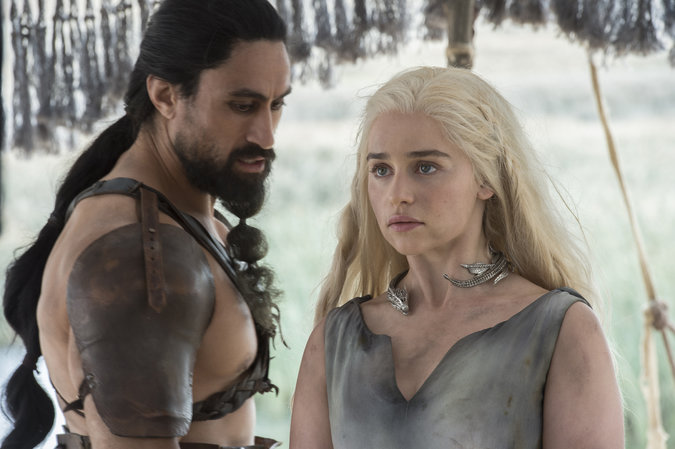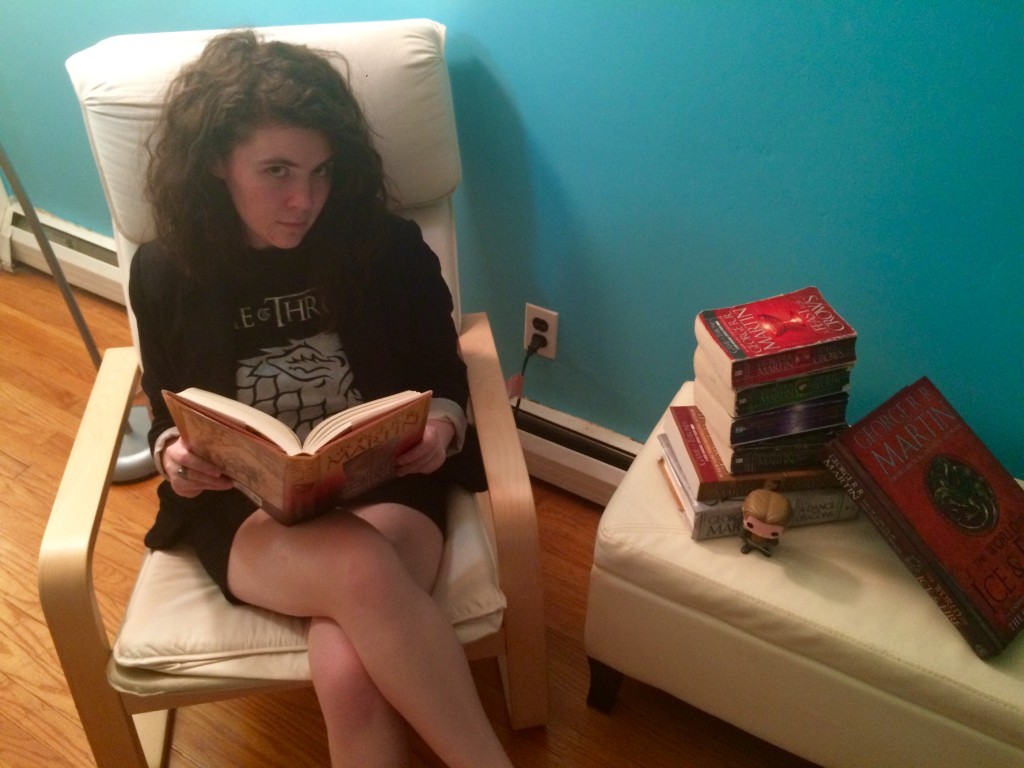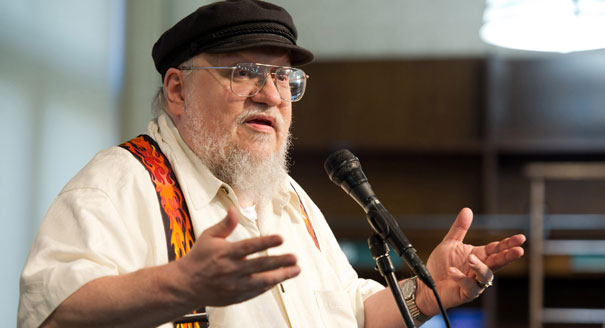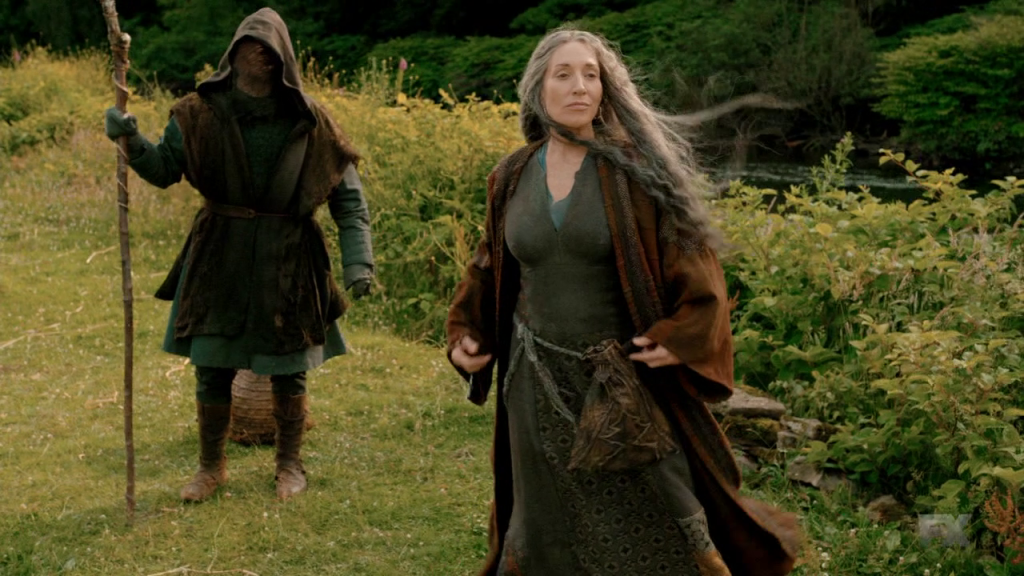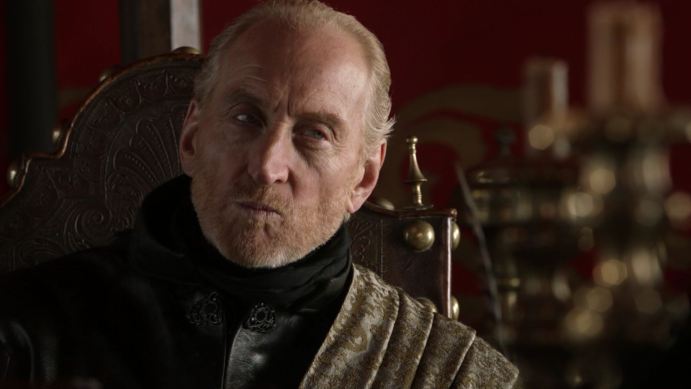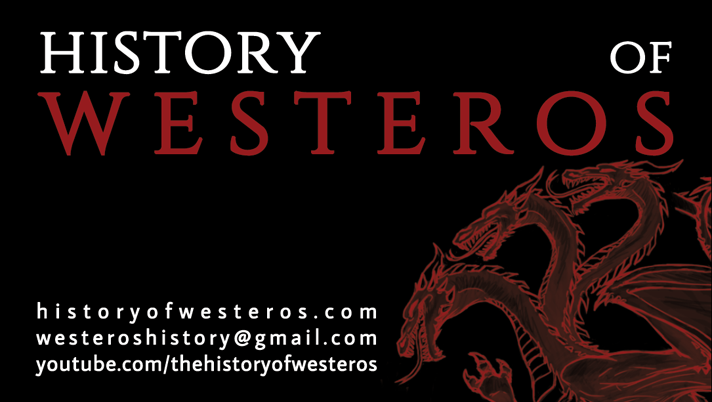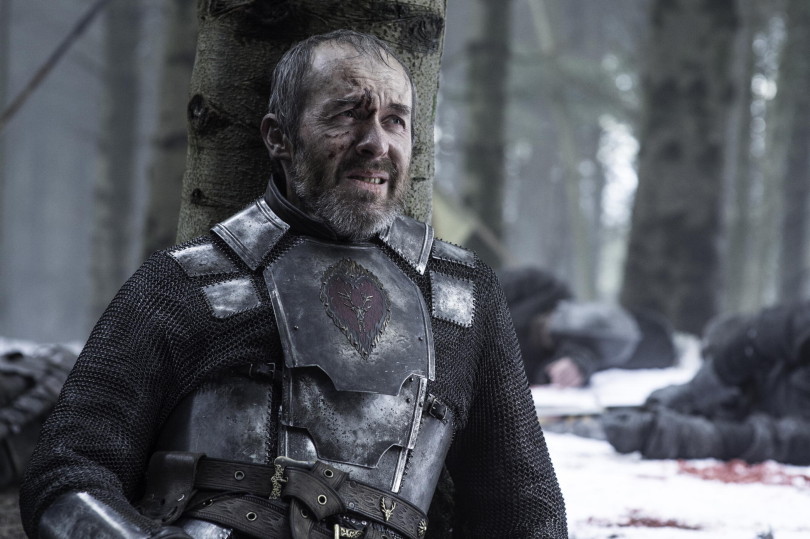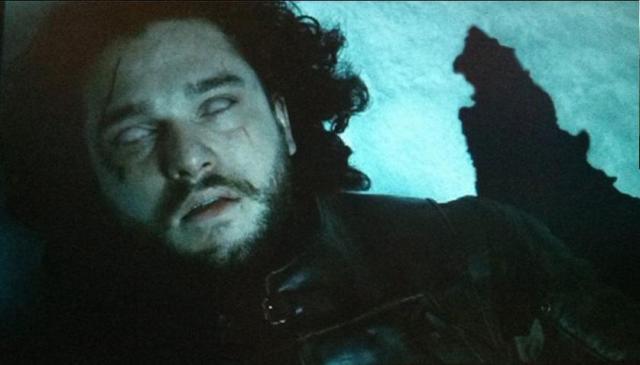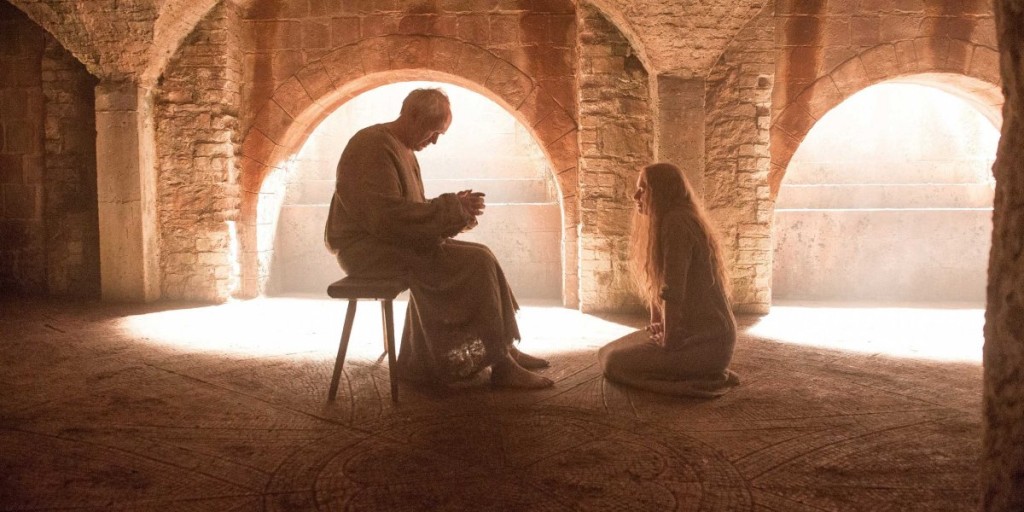Season five might be over, but I’m excited to keep the Interviews of Ice and Fire going with our next guest. Hamish Duncan, known throughout the ASOIAF community as Militant Penguin is a contributor to Wars and Politics of Ice and Fire. He is also one of the moderators for the ASOIAF subreddit.
One of your essay series covers the “would be” kings of Westeros. Given that none of them have POV chapters to call their own and we can only see them through the perspectives of other characters. Obviously this leads to some discrepancies depending on how the individual character felt about each king. Which do you think got the fairest shake from the characters in the series?
I’d say that Stannis probably gets the fairest shake of all of the kings. Robb is definitely a close second though. Stannis is viewed from multiple POVs all of whom have their own agendas and biases. However, I think that the greater number of POVs representing their own views about Stannis actually benefits his overall character and gives him a more realized form. Eventually all of these biases and views start overlapping and you see the more realized form of a character. It’s sort of a blend of a mosaic and a Venn diagram in a way.
Davos Seaworth, Eddard Stark, Maester Cressen, Melisandre of Asshai, Asha Greyjoy, and Jon Snow give us a more reasoned, positive, and deeper perspective into Stannis. They see beyond the hard, stubborn, teeth grinding king and battle commander. They see the man for what he is, a deeply conflicted, imperfect, and flawed man who is ultimately good in his own niche way.
Cersei Lannister, Tyrion Lannister, and Catelyn Stark have their own views on Stannis that are somewhat negative but do give a great insight into how hard it is to like Stannis when you deal with him on a shallower, administrative basis. Stannis is a stickler for the rules and the law, with some bending one way or another, and people like that are not really fun to be around and are quite unpopular. They get the job done but they are not well liked for it.
Theon Greyjoy and Samwell Tarly are scared of Stannis, although Theon is more afraid of Ramsay, because Stannis is absolutely terrifying. However, they give ample insight into what it means to know such an imposing man and be at the mercy of his mood.
Stannis gets the fairest shake of any king in the series because we hear far more peoples’ thoughts on him than any other king. The positive, the negative, the fearful, the shallow, and the deep all give a far more complete picture of Stannis Baratheon both as a king and as a man.
If you could give one of the kings a POV chapter, which would you pick?
Definitely Robb Stark. I would have loved to have seen the Westerlands campaign from his point of view. However, I think that Robb as a POV character would have been a great read. He strikes me as one of the more tragic and tormented characters of the series. He’s left in charge on his own at a very young age while a lot of the family he grew up with leave Winterfell, he rides to war to save his father who is ultimately killed, he is effectively blackmailed into a marriage pact with a woman he may never love, he has to earn the respect and win the loyalty of battle hardened veteran soldiers under his command, he must win victory after victory or risk annihilation, he is elected king at a very young age, he has to defend the indefensible Riverlands while the Greyjoys attack his home, his best friend betrays him and apparently burns down his home and kills his brothers, he is wounded and accidentally sleeps with a kind girl who nurses him in his darkest hour, he betrays a marriage pact to save her honour at the expense of his own because he’d never want his own possible child to suffer like Jon Snow did, his uncle apparently unknowingly botches his entire campaign plan that ultimately results in the him being effectively surrounded, he is abandoned by the Freys and Karstarks because he did what he thought was right if not smart, in his desperation he turns to the man whose marriage pact he betrayed for help while one of his top generals actively sabotages the war effort and plots behind his back, he finally figures out how to get back home before a wedding where his friends and allies are butchered before his eyes before he himself is murdered after possibly dying inside of his own direwolf beforehand.
Imagine reading all of that from Robb’s perspective. If you thought Catelyn’s chapters could be depressing imagine reading Robb’s right up until his death.
One of your other essays goes in-depth into The Great Council, which has an impact on the series that most people don’t really realize which of course directly lead to the Dance of the Dragons. How different do you think the series would be if Rhaenyra had ascended to the thrones?
I think the end result may have been the same on the condition that a civil war still occurred. The people would have turned against her, providing the war lasted the same amount of time and did the same amount of damage, and she would have likely died, probably being murdered by one person or another. I think Aegon III probably still would have ascended to the throne but would have had a lot of difficulty in ruling a land ravaged by dragons.
If the war never happened and succession went ahead like Viserys I planned with Rhaenyra ascending to the Iron Throne without issue there may have been a decent chance for peace. However, given her later paranoia, violence, and the past moves of Alicent Hightower, it probably would have come to war in one way or another if Rhaenyra made a move against the Hightowers and Aegon if she felt they were a big enough threat to her continued reign.
The thing that bugged me about season five more than anything else was Jorah contracting greyscale. In reading your Rhaegar essay over, I see a fair amount of book parallels between Ser Friendzone and Jon Connington.
Jorah and Connington are definitely birds of a feather when it comes to their histories and personalities. Both were exiled from their homelands, lost their honour in some way or another by being sellswords and either by slaving or by allegedly dying as a thieving drunk, and both are doomed to love Targaryens even if it ruins and kills them.
They are similarly tragic characters who are ultimately the architects of their own destruction and they’ll do it all for someone unattainable that they obsessively love.
Jorah wants to get back in Daenerys’ good graces after betraying her and being exiled. It’s about guilt for Connington who blames himself for Rhaegar’s death and is willing to do anything to make up for it. Guilt is one of their commonalities; Jorah’s actual guilt for being a spy and Connington’s imagined guilt over Rhaegar’s death. Love and guilt are ultimately going to destroy these men and they are too wrapped up in it to the extent that they haven’t quite realized the mortal danger they have put themselves and/or others in.
I really enjoyed your essay on Domeric Bolton. Is it safe to say you’re not a believer in the “Bolt-On” theory that Roose plans to pull a Buffalo Bill and wear Ramsey’s skin?
Thanks very much. I really enjoyed writing that essay. It was great fun trying to play detective. I’m not a believer in “Bolt-On” but I love that theory. It is a hell of a lot of fun to read. I think there was a YouTube video last year that laid out “Bolt-On” in all of its skinless glory and it somehow made not seem as farfetched as you’d initially think after reading it for the first time.
I will always encourage and support fans who do that amount of out of the box thinking. A Song of Ice and Fire is a great universe to play around when you make your theories.
You’re a moderator for the ASOIAF subreddit. Since this time last year, we’ve seen the releases of “The Rogue Prince,” The World of Ice and Fire, season five of Game of Thrones, and another TWOW sample chapter while of course the one thing everyone really wants is still sitting on GRRM’s Wordstar, Have you noticed a heightened sense of urgency within the fandom as the show is only a few months away from blowing past the books?
I would definitely agree that there is a heightened sense of urgency within the fandom and I am absolutely a part of that as well. When you’ve been waiting for a series of books to finish for a number of years and its show adaptation is blowing straight past it to completion while hitting almost every single high note that you’ve been waiting years to read about, it can absolutely affect your sense of urgency.
Not to sound like a purist but the book fans love the intricacies of the story and how it all builds up to each individual climax. I’d say that we love the journey as much if not more than the climax but when a ten episode season often blows over the journey and straight to the climax it feels underwhelming and unfair. We walked the journey, analyzed the text, and theorized about the probable outcome. The show, often by necessity, can skip the large part of the fun journey and build up, and just do the highlights.
I’d say the urgency in the fandom comes from a lack of journey in the show, due to basic budget and production requirements, and the seemingly unearned and spoiler heavy climaxes. We want to see what happens with Jaime and Brienne in the Riverlands when they meet Lady Stoneheart. We want to watch the Battles of Fire, Ice, and Winterfell and see how it compares to our beliefs. Will Jon Snow be reborn in the lordly light of R’hollor? Will Daenerys conquer the Dothraki? Will Euron hit Oldtown and how will the Redwyne Fleet fair against the might of the Greyjoys? How will Littlefinger fall? Will Arya get her revenge? Will hype be acquired? And most importantly, will the North Remember?
It’s about the how, when, where, why, and what. Like the Faith of the Seven would argue, it’s not just about one aspect, it’s about how they fit together to make the greater organic whole.
I want to read about the events as they were originally built up and meant to be told before the show spoils the outcome of these events for me.
I recently wrote an article calling Kit Harrington’s interview with Entertainment Weekly a red herring. Have we seen the last of Jon Snow?
I’m thinking he’ll be back but in what sense is beyond me and that is something I am dying to read and watch. How will he return? Will we have a Beric Dondarrion/Lady Stoneheart situation? Will Jon live out his days in Ghost while his body is wighted? Or, and this is taken from an awesome, if grim theory I read a while back, will it even be Jon inside his body or will a much greyer character possess Jon’s body for his own purposes while Jon is left stranded inside of Ghost and trying to maintain his humanity before it fades away – the apparent fate of wargs when they make their final journey into their animal companions?
Jon will be back but he might not be the Jon we know.
Casting speculations have lead many to believe that we’ll see a Tower of Joy prequel scene next season. If you could film one event from before the main series, which would you pick?
Probably the Dance Over Harrenhal, an aerial dragon duel between Aemond ‘One-Eye’ Targaryen and Daemon Targaryen.
What were your thoughts on season five as a whole?
Season 5 had a lot of good going for it that prevented it from sucking outright. It was just meh to me. I wasn’t at all emotionally engaged. It was an entire season of “oh, well that happened”, imperfect writing, and not well thought out changes. I think it could have been really great if things were just executed better.
Season 5 was about a 7/10 for me. It was okay when it could have been brilliant.
In further detail though and to encapsulate it in one phrase, lack of immersion.
Unlike the previous seasons I just wasn’t encapsulates by the show. I just didn’t care overall apart from when it came to the Stannis changes but that’s an external and not an internal thing. To me there was just no tension or emotion in this season. It just felt hollow and there was no reason to give a damn or emotionally invest in characters anymore.
With previous seasons you were drawn into the show and felt less like a passive viewer and more of an in universe observer, as pretentious as that sounds. Stuff like the music and the effects drew you in and made you feel; hate, joy, love, fear, and even morbid laughter at times.
I wasn’t at all emotionally engaged with this season.
Episode 9 is a good example to highlight the issue I had.
The previous penultimate episodes definitely made me feel something before.
Baelor – Sadness for Ned, hatred for the Lannisters, and sadness and pride for Robb and Catelyn.
Blackwater – Hatred for Joffrey, morbid laughter with Cersei, pity for Sansa and Lancel, pride for Tyrion, Podrick, and Bronn, and awesomeness for Stannis.
The Rains of Castamere – Dread for Robb, Catelyn, Talisa, and the Northerners, morbid laughter with Walder Frey and the Blackfish, fear from Roose Bolton, happiness and sadness for Robb and Talisa, pride for Robb, happiness for Edmure, hatred for the Boltons and Freys, sadness for Grey Wind, and horror. It’s my favourite episode and I fucking love and hate it all at the same time.
The Watchers On The Wall – pride for Jon, Grenn, Sam, and Thorne, sadness for Grenn and Pyp, sadness for Jon seeing Ygritte die, morbid laughter at Hob, the Giant archer, and Janos Slynt.
Dance of the Dragons – meh.
What worked and what didn’t for you?
What Didn’t Work
– Dorne was not great save for Siddig, Flynn, and Coster-Waldau. Things like the dialogue, choreography, editing, and writing just didn’t work.
– Loras is a problem I’ve mentioned before. He’s a really bad gay stereotype, a pretty demeaning one at that, when he could be a really interesting character. Despite its wonderful and awesome gratuity at times, Spartacus knew how to write gay characters and they were awesome.
– Bad writing and characterisation. This affected a lot of people. Stannis, Olly, Sansa, Melisandre, Selyse, Sand Snakes, Elliara, Loras, Doran, etc. A lot of plot contrivances.
– At times, bad fighting choreography.
– Littlefinger’s ridiculous plan.
– Too many black and white characters. Not enough grey.
– New material often wasn’t that well thought out, written, and executed. I have no problem with new material but just as long as it is executed well.
What Did Work
– House of Black and White along with Arya.
– Acting was on point for a lot of the season, save for our serpent friends.
– Effects were great as always except for Dany on Drogo in episode 9.
– Hardhome was excellent. One of the best the series has ever done.
– Faith Militant and Sons of the Harpy were suitably imposing and intimidating.
– I liked Daznak’s pit and the gladiator showcase. A lot of good differing fighting styles were put on display for us to enjoy.
– Cersei’s walk was well executed.
– A lot of great chemistry between the cast members.
– Excellent music as always.
I often felt that this past season saw some unnatural character deviations, mainly from Littlefinger, Stannis, and Brienne. Am I being too hard on D&D?
I think it there are definitely some deviations in the show that are unnatural for characters. Littlefinger, as much as I hate him, is not stupid and wouldn’t risk Sansa’s life like that. She’s far too valuable to leave in that kind of unknown situation.
As for Brienne, I think this comes down to not having much for her to do this season. Some of her scenes were a little too obvious at times and a bit contrived but I think she remained as intact as she could, save for calling Renly the king – in no world was Renly not a usurper.
Properly characterizing Stannis has always been an issue for the show from his first appearance. Stannis is arguably one of the most morally grey characters in the series and that can be incredibly hard to capture in a limited amount of scenes that are just a few minutes long. Sometimes, and I’m hardly unbiased about this so take it with a pinch of salt, I think the showrunners intentionally made him a lot darker than he should have been. They just didn’t do a great job of adequately capturing a lot of Stannis’ inner and outer character conflict. They made him a sexually obsessive religious fanatic who proclaims his love for his Greyscale infected daughter one day and burns her alive the next and that is rushed characterization for anyone. There was no tension or build up. It would have been better if we got a truer sense of how truly desperate Stannis’ situation was. Also, giving him Melisandre’s lines from A Storm of Swords about the value of an innocent life against a kingdom, removing the fact that it was Stannis who, following Davos’ council, chose to go to the Wall to rescue the Night’s Watch, and having him burn people for being infidels as opposed to the outright traitors they were really sticks in my craw. Stuff like that is unnecessary and annoying.
Getting back to your original point, sorry for the rant by the way, I think we are all entitled to our criticisms and praise for a piece of work. When it comes to adaptations of a beloved series this gets slightly more intense because there is already a piece of original work to compare the adaption to, this original work is often almost sacred to a fan base and a lot of them don’t like changes being made to the source material, which I totally understand.
However, as much as I dislike a lot of the changes made by D&D, I accept that a lot of them are necessary for one reason or another. I think as long as you don’t make it personal, there is no reason why you shouldn’t critique a piece of work as much as you like for what that work is and how it is executed.
It’s an adaptation, and as much as I’m salty about various changes, it is its own beast now. Books are still awesome and the show is really good too, for the most part. In all honesty I really don’t have this kind of enlightened attitude during the show season. Come next season I’ll probably be caught bitching with the best of them.
What’s the craziest theory that you actually believe could be true?
Howland Reed could actually be the High Sparrow and I would be totally okay with that. It would definitely detract from the characterization of both the Faith Militant and Cersei in the books but I really wouldn’t mind that much.
Generic question, but one that I always like to ask. Who’s your favorite character? Is the same true for the TV show?
Favorite book character has got to be my beloved Wyman Manderly. This doesn’t carry over to the show unless he is cast for next season so my favorite show character is Ser Bronn of the Blackwater.
I was excited to see Benjen in the “previously on” for the season five finale, though the wolf pup didn’t appear. I’ve always though there’s a bigger reason that he joined the Night’s Watch besides the fact that he wouldn’t inherit Winterfell. Why do you think he took the black?
Well, the Starks do have a history of sending younger sons to the Wall but given all that happened during Robert’s Rebellion and how many Stark lives were lost, I always thought there must be a greater reason why Benjen took the black. I’m thinking, in a fashion similar to Ned, Benjen carries around the guilt of knowing something, probably the truth that Lyanna willingly ran off with Rhaegar, and has essentially gone into self-imposed exile in order to assuage his guilt by serving a realm that he played a minor part in nearly destroying. He may have also taken the black in order to prevent him from benefitting in one way or another from the deaths of his father, brother, and sister if a succession issue should’ve arisen.





